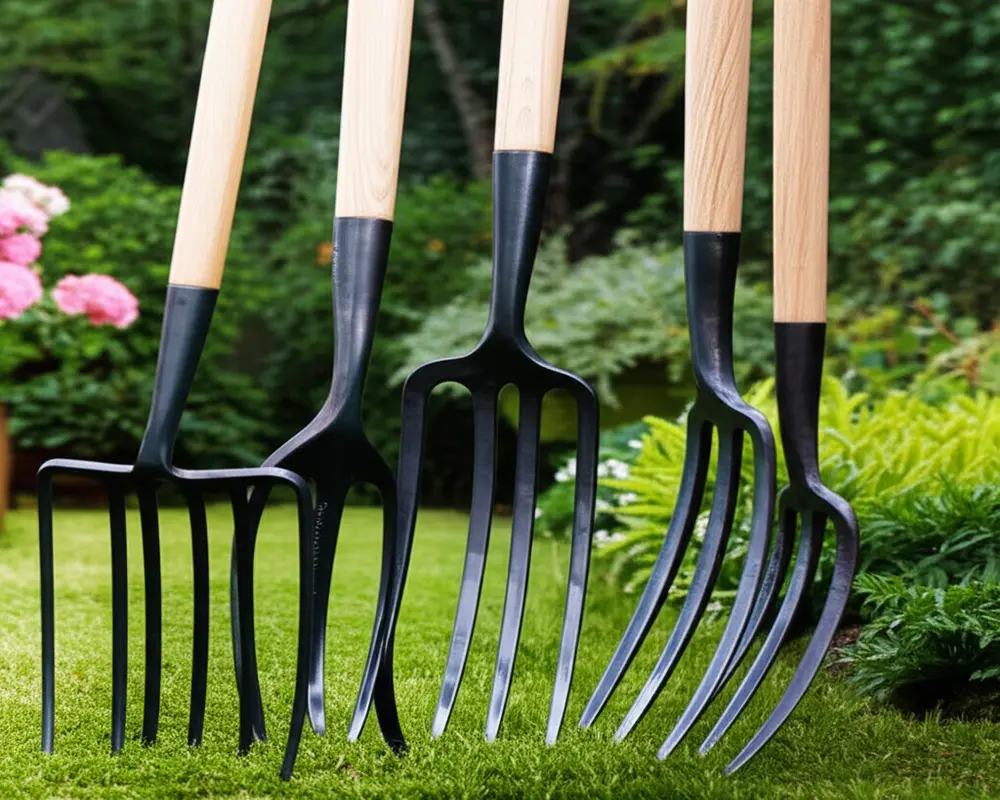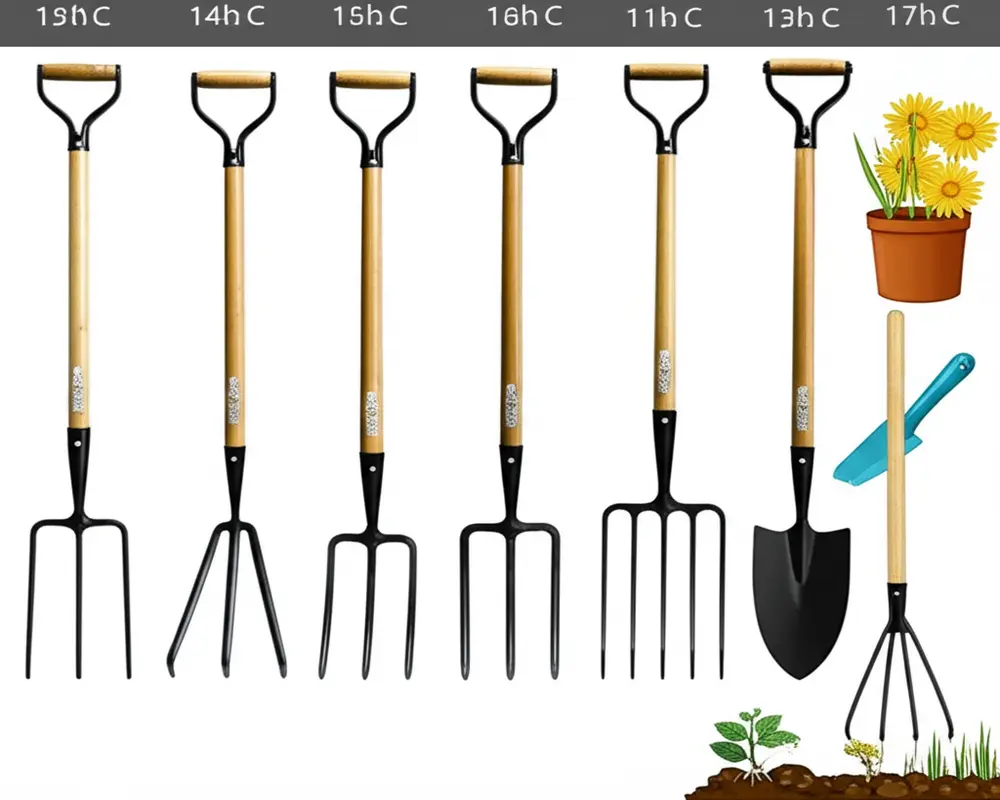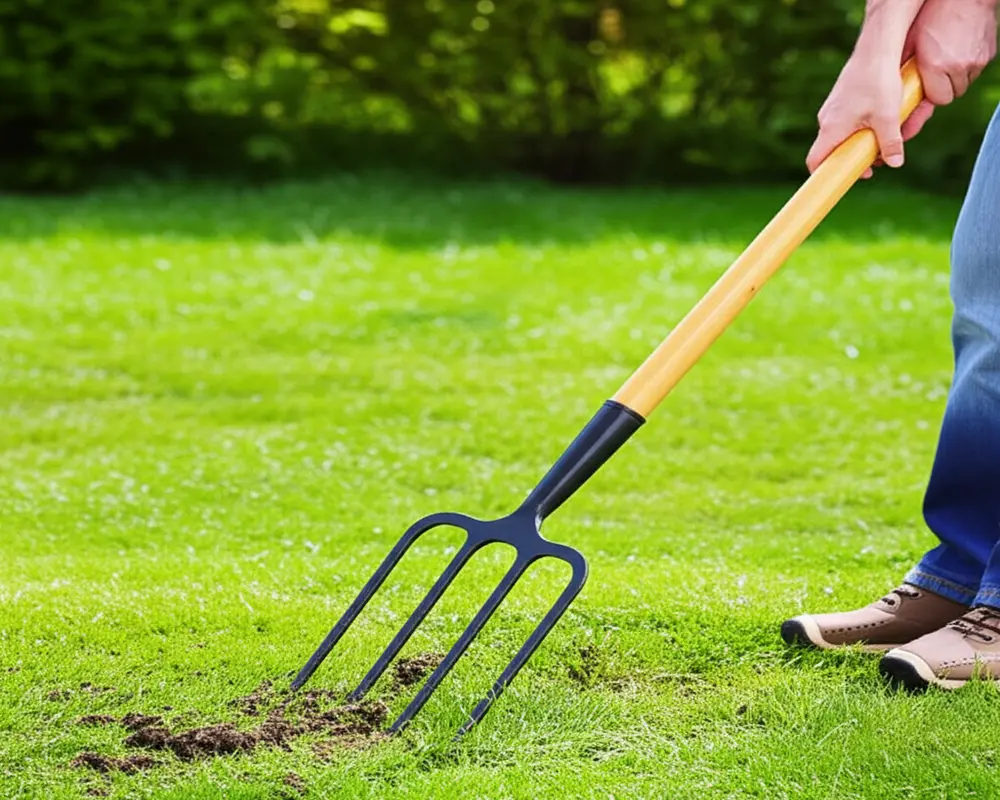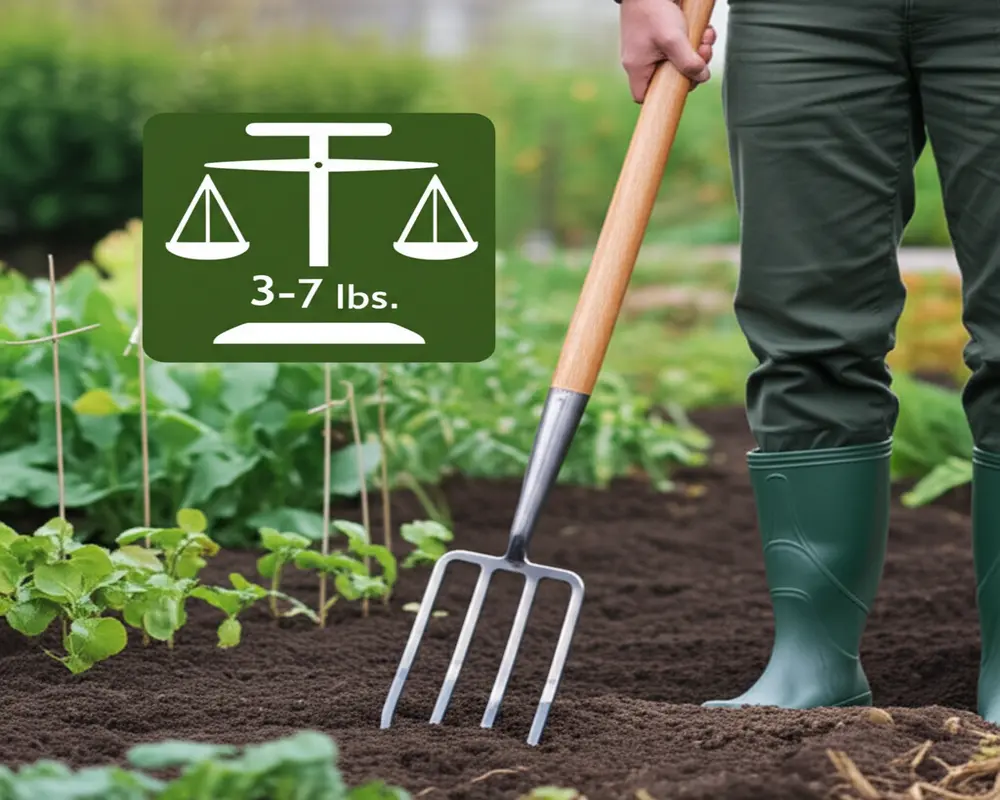The Definitive Guide to Garden Fork Weight: Finding Your Ideal Balance for Effortless Gardening
When it comes to gardening, the tools you wield can make all the difference in your comfort and efficiency. Among these, the garden fork weight is a critical yet often overlooked factor. Choosing a fork that is too heavy can cause fatigue and strain, while one that’s too light might lack the durability and power for tougher tasks. This guide will walk you through understanding typical weight ranges, what influences the weight of a garden fork, and how to select the perfect balance tailored to your gardening needs in 2025.
The typical garden fork weight tends to range between 3 pounds to 6 pounds (about 1.4 kg to 2.7 kg), but this varies widely based on materials and design. We’ll explore these intricacies and give you practical advice for selecting a fork that works hard without weighing you down.
Understanding Garden Fork Weight: Average Ranges & Variations
Typical Weight for Standard Digging Forks
Standard digging forks generally weigh between 4 to 5 pounds (roughly 1.8 to 2.3 kilograms). This weight strikes a balance between providing enough heft to penetrate soil effectively and remaining light enough to use comfortably over extended periods. Variations within this range arise due to factors such as the materials used, design, and intended gardening task.
Border Forks vs. Digging Forks: A Weight Comparison
Border forks are purpose-built for lighter tasks like working flower beds and cultivating surface soil. Consequently, they tend to be lighter, generally between 3 and 4.5 pounds (1.4 to 2 kilograms), facilitating easy maneuverability for detailed work.
Quick Reference: Garden Fork Weight at a Glance
| Type | Typical Weight Range |
|---|---|
| Standard Digging Fork | 3.5 – 6 lbs (1.6 – 2.7 kg) |
| Border Fork | 3 – 4.5 lbs (1.4 – 2 kg) |
| Manure/Compost Fork | 4 – 7 lbs (1.8 – 3.2 kg) |
What Influences a Garden Fork’s Weight? Materials, Construction, and Design
The Head & Tines: Material & Forging
The garden fork’s head and tines are mostly forged from steel, with two common types influencing weight and longevity:
- Carbon Steel: Heavier but very strong and durable. It can resist bending and is a traditional choice preferred for tough digging tasks.
- Stainless Steel: Lighter and resistant to rust, making it a good choice for wet or humid environments. However, it may be less robust than carbon steel under high stress.
The construction method also matters: a solid forged head typically offers higher durability and denser weight, whereas welded heads might weigh less but could be more prone to wear over time.

The Handle: Core to Overall Weight
The handle constitutes a significant portion of the garden fork’s total weight, and the choice of material impacts both comfort and accuracy of use.
Ash Wood Handles offer a traditional, natural feel with excellent shock absorption but tend to be heavier. Fiberglass Handles are lighter and weather-resistant, ideal for gardeners seeking reduced tool weight. Metal handles vary: steel provides robustness at the cost of weight, while aluminum is lightweight but less rigid, with wall thickness playing a crucial role in durability and feel.
Handle Length & Design
The length and shape of a handle affect how the weight feels during use due to leverage and grip comfort. Longer handles can increase perceived effort or ease, depending on the task and your body mechanics. Handles come mainly in two ergonomic designs: D-handle and T-handle, where D-handles generally provide a firm grip for digging, and T-handles offer more control, especially at the tines’ end. These designs have minor differences in overall weight but can significantly impact user fatigue and precision.
The Impact of Weight: Performance, Ergonomics, and Your Body
Lighter Garden Forks: Pros & Cons
Lightweight garden forks, often below 4 pounds (under 1.8 kg), are excellent for gardeners with limited strength or those performing light tasks such as aerating or gentle cultivation. They reduce arm fatigue and are easier to handle, especially in raised beds or tight spots.
However, lighter forks typically deliver less momentum, making them less effective for heavy digging or prying roots. Durability may also be compromised depending on materials.
Heavier Garden Forks: Pros & Cons
Heavier forks, often exceeding 5 pounds (2.3 kilograms) up to 7 pounds (3.2 kilograms), provide increased momentum and leverage — valuable when penetrating compacted soil or breaking up clay.
The downside is quicker fatigue, particularly during prolonged use, and the weight can be strenuous on the back and shoulders without proper ergonomics.
The Physics of Digging: Weight, Leverage, and Soil Penetration
Effective digging employs the interplay of weight, gravity, and leverage. The fork’s head weight contributes to momentum, aiding penetration. The handle length modifies leverage, reducing user effort needed to pry soil. Together, these factors determine how effortlessly the fork moves through the ground.
The Crucial Role of Balance: Beyond Just Total Weight
An often underestimated factor is the balance of the garden fork. A well-balanced fork distributes weight evenly between head and handle, enhancing control and reducing strain. Poor balance can make even a light fork feel awkward, while good balance allows efficient use of your strength.
Preventing Fatigue & Strain: How Weight Choice Impacts Your Health
Choosing the right fork weight and balance helps prevent common gardening injuries like back strain, shoulder fatigue, and repetitive stress injuries. Matching tool weight to your physical capabilities and optimising for ergonomics supports longer, more comfortable gardening sessions.
Choosing the Right Weight for YOU: A Gardener’s Decision Guide
Assess Your Physical Condition & Strength
Beginners, elderly gardeners, or those with joint issues will find lightweight forks easier to handle, reducing fatigue and risk of injury. Conversely, individuals accustomed to regular, intense gardening work can opt for moderately heavier forks to benefit from durability and task efficiency.
Identify Your Primary Gardening Tasks
Your choice depends largely on intended use. Lighter forks suit light cultivation, weeding, and aerating, while heavier forks excel at breaking compacted or clay soil and dislodging roots. For compost turning or moving loose material, a balanced mid-weight fork is preferable.
Try Before You Buy (If Possible)
Whenever possible, handle the garden fork to gauge comfort, weight, and balance. The feel in your hands often matters more than specifications on paper.
Expert Tip
Focus more on the overall balance of weight and handling rather than simply looking at numbers. A well-balanced fork can outperform a heavier but poorly balanced one.
Beyond Weight: Other Essential Buying Considerations for Your Garden Fork
Overall Durability & Construction Quality
Look for forks with solid forged heads and sturdy, secure connections between the handle and head. These features extend the tool’s lifespan and performance.
Ergonomics & Handle Design
Comfortable grips and handle diameters that suit your hand size reduce fatigue and increase precision when working.
Price vs. Value
While price can correlate with quality, expensive doesn’t always mean better. Focus on durability, material quality, balance, and ergonomic design to assess value.
Brand Reputation & Warranty
Reliable brands offer well-designed, balanced tools and backing warranties. Trusted manufacturers often incorporate better materials and craftsmanship.
Common Questions About Garden Fork Weight (FAQs)
Is my garden fork too heavy for me?
Signs include quick fatigue, strain, or awkward handling during typical gardening tasks. If this occurs, consider switching to a lighter or better-balanced fork.
Can a lighter garden fork still be durable?
Yes, if crafted from high-quality materials like forged steel or reinforced fiberglass handles, lightweight forks can remain sturdy and last long.
What’s the ideal weight for a multi-purpose garden fork?
A balanced mid-weight fork around 4 to 5 pounds (1.8 to 2.3 kg) is generally ideal for versatility, combining manageable weight with sufficient strength for various tasks.
Conclusion
Choosing the perfect garden fork weight is a subjective decision influenced by your physical condition, gardening tasks, and personal preference. Understanding the materials, ergonomics, and dynamics between weight and balance will empower you to pick a garden fork that delivers efficiency and comfort, transforming your gardening experience in 2025.
Feel free to share your experiences or questions about garden fork choices to help fellow gardeners make informed decisions!


For further insight into selecting garden tools suited to your needs, consider exploring our detailed guides on best garden spades. They complement garden forks well in your gardening toolkit.
You may also find valuable advice from authoritative external resources such as the Royal Horticultural Society’s Choosing Tools page, or comprehensive fork selection tips at Garden Tool Expert’s website.
The Spruce’s Garden Fork Buying Guide is another excellent resource providing valuable perspectives on tool weights and usage techniques.

